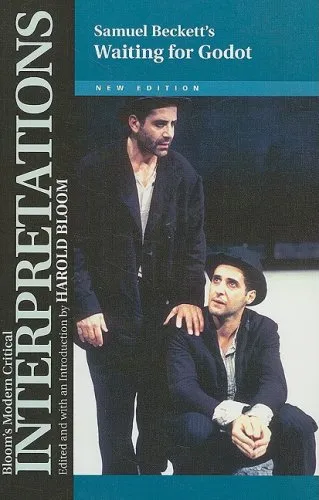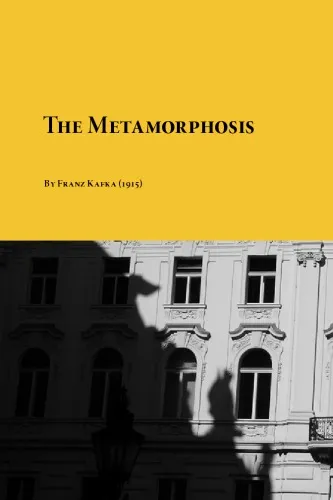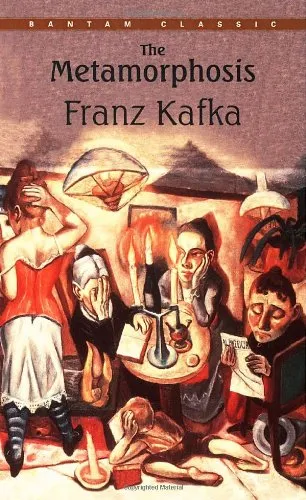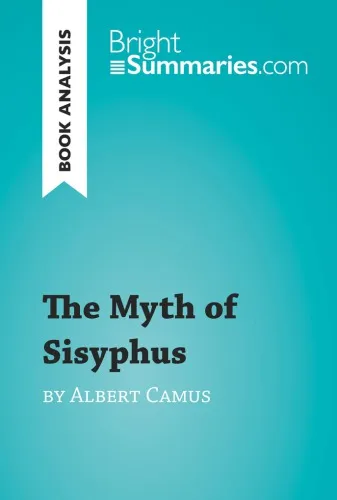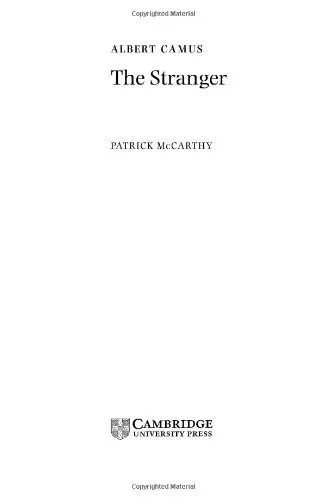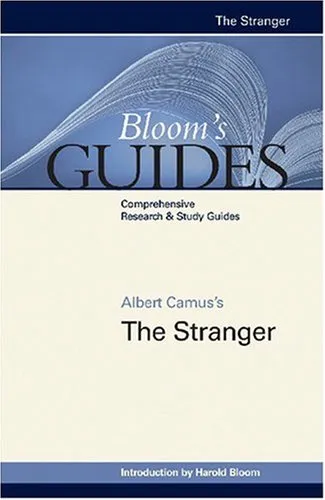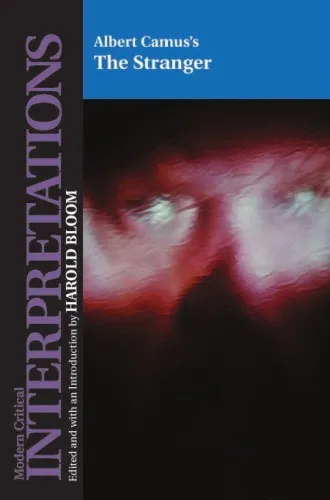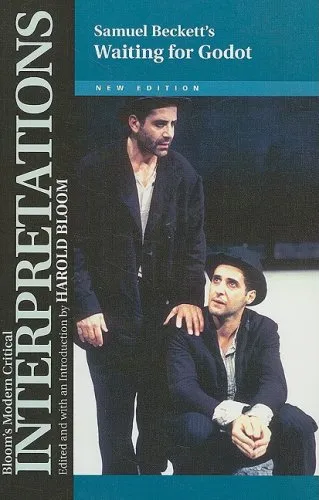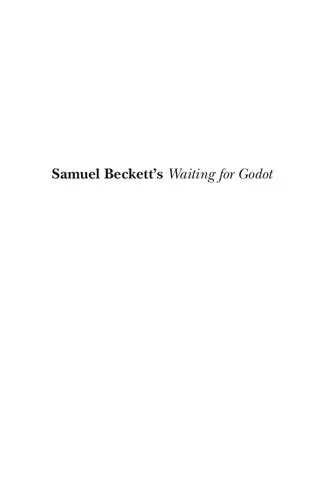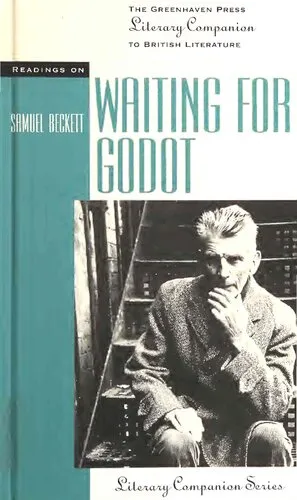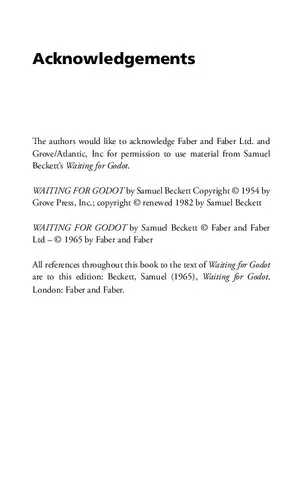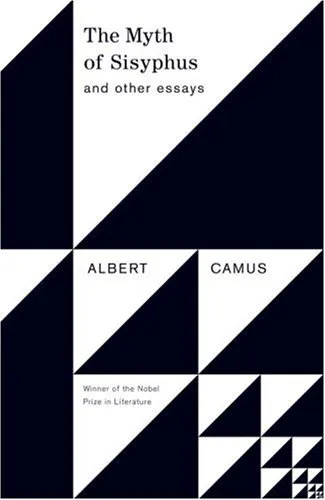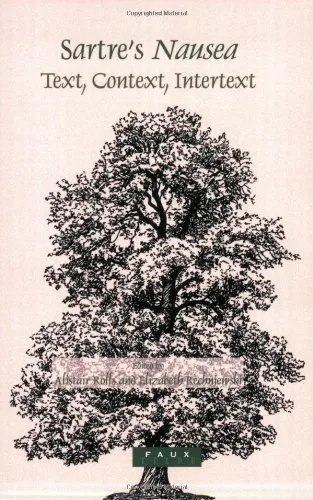Samuel Beckett's Waiting for Godot (Bloom's Modern Critical Interpretations)
4.5
Reviews from our users

You Can Ask your questions from this book's AI after Login
Each download or ask from book AI costs 2 points. To earn more free points, please visit the Points Guide Page and complete some valuable actions.Related Refrences:
Introduction to Samuel Beckett's Waiting for Godot (Bloom's Modern Critical Interpretations)
Samuel Beckett's "Waiting for Godot" is a cornerstone of the modernist canon, offering profound insights into human existence, existentialism, and the absurdity of life. This edition of "Bloom's Modern Critical Interpretations" illuminates Beckett's work with rich, thoughtful analyses by esteemed scholars, curated by Harold Bloom. Dive into these pages to explore the themes, motifs, and critical perspectives that have cemented "Waiting for Godot" as a pivotal work of twentieth-century drama.
Detailed Summary of the Book
The heart of "Samuel Beckett's Waiting for Godot (Bloom's Modern Critical Interpretations)" is an exploration into a profoundly enigmatic play that exemplifies the Theatre of the Absurd. "Waiting for Godot" follows the lives of two characters, Vladimir and Estragon, as they wait for a figure named Godot, who never arrives. Throughout the play, they engage in a series of dialogues and encounters with other characters such as Pozzo and Lucky, punctuated by repetitive actions and barren landscapes that evoke an exploration of existential dread and a search for meaning.
In this critical interpretation, readers will find a compilation of essays offering diverse insights into the play. Essays examine elements such as the historical context of Beckett's writing, the influence of existential philosophy, and the unique, minimalist aesthetic that characterizes Beckett’s style. Scholars also delve into the intricate character dynamics, linguistic nuances, and the symbolic richness that have made "Waiting for Godot" both a timeless and timely work.
Key Takeaways
- Existential Exploration: Beckett’s play is a depiction of existential philosophy, underscoring the themes of meaning, identity, and the human condition.
- Theatre of the Absurd: "Waiting for Godot" is a seminal example of absurdist theatre, portraying a world where logic, time, and structure seem secondary to chaos and irrationality.
- Minimalism and Repetition: The play’s structure and dialogue emphasize minimalism and repetition, tools that Beckett utilizes to reflect the monotony and uncertainty of life.
- Symbolism and Interpretation: The waiting, the barren setting, and the enigmatic Godot symbolize deep philosophical questions, leaving much open to interpretation.
Famous Quotes from the Book
"Nothing to be done."
"They give birth astride of a grave, the light gleams an instant, then it's night once more."
"Let's go." "We can't." "Why not?" "We're waiting for Godot."
Why This Book Matters
"Samuel Beckett's Waiting for Godot (Bloom's Modern Critical Interpretations)" is not just a reflection on a single work; it is a window into the deep existential questions and the cultural impact of Beckett's masterpiece. The book encapsulates the critical discourse surrounding "Waiting for Godot," bringing together interpretations that highlight its enduring significance across diverse disciplines—from literature and theatre studies to philosophy and beyond.
With Harold Bloom's insightful curation, the volume guides readers through the intricate layers of Beckett’s play, offering a nuanced understanding that engages both seasoned scholars and newcomers. It underscores the continuing relevance of "Waiting for Godot," especially in contemporary discussions about the human condition, crisis, and the search for meaning in an uncertain world.
Free Direct Download
You Can Download this book after Login
Accessing books through legal platforms and public libraries not only supports the rights of authors and publishers but also contributes to the sustainability of reading culture. Before downloading, please take a moment to consider these options.
Find this book on other platforms:
WorldCat helps you find books in libraries worldwide.
See ratings, reviews, and discussions on Goodreads.
Find and buy rare or used books on AbeBooks.
1639
بازدید4.5
امتیاز0
نظر98%
رضایتReviews:
4.5
Based on 0 users review
Questions & Answers
Ask questions about this book or help others by answering
No questions yet. Be the first to ask!
